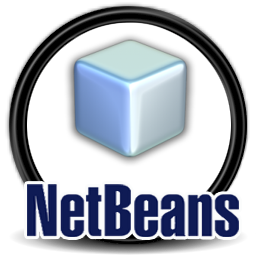What a Tool
21 Sep 2016Within every Information and Computer Science (ICS) class I have taken, every professor will talk about how this or that development environment and language is the best one out there. I believe each professor is correct and each language has a unique quality that will help a programmer strengthen their programming skills. Also, learning different languages help ICS majors get hired into different computer science companies. However, it is hard to choose which is the best development environment.
Integrated Development Environments




An integrated development environment (IDE) is a software editor that programmers can write in. There are outdated IDEs that deserve to be dragged into the recycle bin and are just as useful as Notepad. Then there are other develop environments that help improve the readability of code and productivity of the programmers work. Two examples are Intellij Dea and Eclipse, which are very similar but also very different. Usually an IDE will have an editor, a debugger, a console, and other tools that help programmers write and test code. In an IDE text can be changed, layouts can be made, and standards can be set. You may be thinking, “So what? Why fuss over something so trivial? As long as you can code, then you can get your job done.”, but IDEs should not be taken for granted. Think of it this way; have you ever written a ten page essay by hand? Maybe you have, maybe you have not but it does not dismiss the fact that typing an essay takes way less time and looks way more better. It is the same concept for using IDEs. We are not writing code by hand but the difficulty of writing without a IDE is harder than writing an essay with a pencil.
Coding Standards

Since writing essays was already mention, the example for coding standards will be consistent. Coding standards are what it sounds like; standards for coding. Just like how writing has to be either MLA or API format for different classes and/or jobs, coding standards also differ between professors and/or employers. An IDE has tools and settings that help place those coding standards. Both IDES and coding standards are extremely important in a work environment because on a team where tasks are segregated by groups or individuals, it wold be difficult to combine all of the pieces if each of them looked and worked differently. So coding standards are placed so programs are easy to read, to prevent bugs and to debug.
In my current class, ICS 314, we use a tool ESlint which is similar to spell check. It checks if everything is formatted correctly and notifies me when it is not. In my opinion, ESlint gives me comfort because it lets me know everything looks fine. I have always been the type of programmer to make my code look presentable; I want each block, method, and class to be visible to the common eye. The only problem I have is with the standard for white spacing. For ESlint I am not allowed to have more than one line separating code. (I always separate my methods two new lines a part while blocks are separated with one new line.) However, a coding standard will help a programmer develop habits that prevent bugs. A return statement will not be forgotten, a variable or method will never be unused, and a bracket will never be missing (idealy).
The Point Is
If you are a programmer in any way, an IDE will be the base of your code and the coding standards will be the supports. Both tools will strengthen your code to withstand unwavering anomalies. Choose an IDE of your choice and master its techniques, it will affect your code efficiency. Also, if you do not have coding standards make some, it will impress the future employers. Finally, take advantage of the tools given to you in programming and in life.